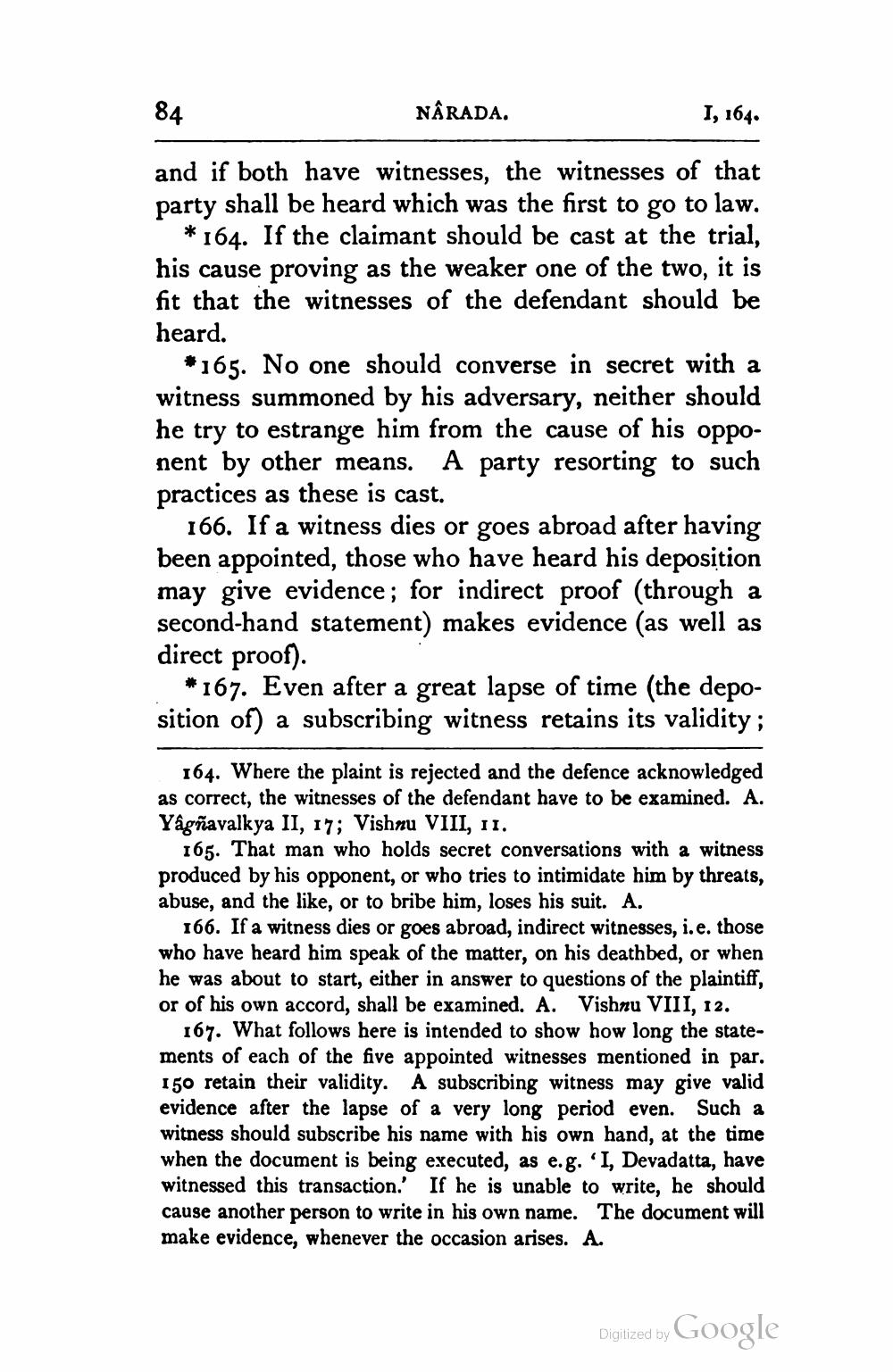________________
NÂRADA.
I, 164.
and if both have witnesses, the witnesses of that party shall be heard which was the first to go to law.
*164. If the claimant should be cast at the trial, his cause proving as the weaker one of the two, it is fit that the witnesses of the defendant should be heard.
* 165. No one should converse in secret with a witness summoned by his adversary, neither should he try to estrange him from the cause of his opponent by other means. A party resorting to such practices as these is cast.
166. If a witness dies or goes abroad after having been appointed, those who have heard his deposition may give evidence; for indirect proof (through a second-hand statement) makes evidence (as well as direct proof).
*167. Even after a great lapse of time (the deposition of) a subscribing witness retains its validity;
164. Where the plaint is rejected and the defence acknowledged as correct, the witnesses of the defendant have to be examined. A. Yagñavalkya II, 17; Vishnu VIII, II.
165. That man who holds secret conversations with a witness produced by his opponent, or who tries to intimidate him by threats, abuse, and the like, or to bribe him, loses his suit. A.
166. If a witness dies or goes abroad, indirect witnesses, i.e. those who have heard him speak of the matter, on his deathbed, or when he was about to start, either in answer to questions of the plaintiff, or of his own accord, shall be examined. A. Vishnu VIII, 12.
167. What follows here is intended to show how long the statements of each of the five appointed witnesses mentioned in par. 150 retain their validity. A subscribing witness may give valid evidence after the lapse of a very long period even. Such a witness should subscribe his name with his own hand, at the time when the document is being executed, as e.g. 'I, Devadatta, have witnessed this transaction.' If he is unable to write, he should cause another person to write in his own name. The document will make evidence, whenever the occasion arises. A.
Digitized by Google




